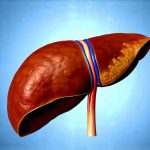The arrival of cold and flu season often brings with it more than just sniffles and coughs. While our immune systems work overtime battling viruses, many don’t realize the significant stress these illnesses – and the treatments we use to combat them – can place on our livers. The liver is a remarkable organ, responsible for countless vital functions, including detoxification, metabolism, and nutrient absorption. When bombarded with toxins from viral infections, medications (even over-the-counter ones), and increased metabolic demands, it can become overwhelmed, leading to fatigue, digestive issues, and potentially more serious health concerns. Understanding how to support your liver during this time is crucial for maintaining overall well-being and navigating the season with resilience.
This isn’t about fearing illness; it’s about being proactive in protecting a key organ that works tirelessly for us year-round. Cold and flu viruses themselves don’t directly attack the liver, but the body’s response to them – inflammation, immune activation, and metabolic changes – can create stress. Additionally, many common cold and flu remedies contain ingredients like acetaminophen or ibuprofen, which are metabolized by the liver. Even seemingly harmless herbal remedies can sometimes place an extra burden on this vital organ. Therefore, adopting a holistic approach that focuses on minimizing liver stress through lifestyle adjustments and informed choices is paramount for staying healthy throughout the colder months.
Supporting Liver Detoxification Pathways
The liver’s primary function is detoxification – processing and eliminating toxins from the body. During cold and flu season, this workload intensifies as the liver deals with viral load, metabolic byproducts of immune response, and potentially medication metabolites. Supporting these natural detoxification pathways is essential for reducing stress on the organ. One key strategy involves ensuring adequate hydration. Water is crucial for all bodily functions, including flushing out toxins through urine and stool. Aim for at least eight glasses of water daily, and consider increasing intake during illness.
Beyond water, specific nutrients play a vital role in detoxification processes. Glutathione, often referred to as the “master antioxidant,” is critical for neutralizing free radicals and assisting with liver cleansing. While glutathione supplements exist, obtaining it through dietary sources like avocados, spinach, and asparagus may be more effective, as absorption can sometimes be an issue with supplements. Furthermore, consuming foods rich in sulfur compounds – broccoli, cauliflower, cabbage – supports Phase II detoxification, which involves converting toxins into water-soluble forms for elimination. Prioritizing a diet filled with whole, unprocessed foods is arguably the most impactful step you can take.
Finally, don’t underestimate the power of fiber. Fiber aids digestion and promotes regular bowel movements, preventing the reabsorption of toxins back into the bloodstream. Good sources include fruits, vegetables, legumes, and whole grains. A healthy gut microbiome also supports detoxification, so incorporating probiotic-rich foods like yogurt or kefir can be beneficial. Remember that a well-functioning digestive system reduces the liver’s burden by minimizing the amount of toxin absorption in the first place.
Minimizing Liver-Stressing Medications & Substances
Many over-the-counter and prescription medications are metabolized by the liver, meaning it has to work hard to process them. During cold and flu season, we often reach for pain relievers, decongestants, and cough syrups – all of which can contribute to liver stress if used excessively or in combination. Acetaminophen (paracetamol) is particularly notorious because even moderate overuse can be harmful to the liver. Always adhere to recommended dosages and avoid combining it with alcohol. If you’re taking multiple medications, consult with a healthcare professional to ensure they aren’t interacting negatively or placing undue strain on your liver.
Alcohol consumption should also be minimized during this time. Alcohol is directly toxic to liver cells and interferes with its detoxification processes. Even moderate drinking can exacerbate the stress caused by illness and medication. Similarly, excessive intake of sugar and processed foods contributes to non-alcoholic fatty liver disease, which can weaken the liver’s ability to function optimally. Focus on a diet low in refined sugars, saturated fats, and processed carbohydrates.
Consider alternatives to conventional medications when appropriate. For example, saline nasal rinses can help relieve congestion without medication, while rest and hydration are often effective for mild colds. If you must take medication, choose options with lower liver toxicity profiles whenever possible, and always follow your doctor’s instructions carefully. Being mindful of what enters your body – both medicinally and through diet – is critical to protecting your liver.
Supporting Bile Flow & Digestive Health
Bile, produced by the liver, plays a crucial role in digesting fats and eliminating waste products. Healthy bile flow is essential for optimal liver function. One way to support this is through consuming healthy fats like olive oil, avocados, and fatty fish. These fats stimulate bile production, helping to move toxins out of the body. Conversely, extremely low-fat diets can actually impede bile flow, leading to stagnation and increased stress on the liver.
Digestive issues are common during cold and flu season, often due to changes in diet or side effects from medications. When digestion is compromised, the liver has to work harder to process toxins that aren’t efficiently eliminated through the gut. Incorporating digestive enzymes can help break down food more effectively, reducing the burden on the liver. Consider adding fermented foods like sauerkraut or kimchi to your diet to promote a healthy gut microbiome and improve digestion.
- Step 1: Prioritize mindful eating – chew your food thoroughly to aid digestion.
- Step 2: Avoid large meals that overwhelm the digestive system.
- Step 3: Stay hydrated throughout the day to support optimal digestive function.
The Role of Antioxidants & Anti-Inflammatory Foods
The immune response to a cold or flu virus generates inflammation within the body, which can put stress on the liver. Antioxidant-rich foods help neutralize free radicals produced during inflammation, protecting liver cells from damage. Berries, dark leafy greens, and brightly colored fruits and vegetables are excellent sources of antioxidants.
Anti-inflammatory foods further support liver health by reducing overall inflammation levels. Turmeric, ginger, and garlic have potent anti-inflammatory properties. Incorporating these spices into your diet can help soothe the inflammatory response triggered by illness. Omega-3 fatty acids, found in fatty fish, flaxseeds, and walnuts, also possess strong anti-inflammatory effects.
Consider incorporating green tea into your routine as well. It contains compounds called catechins which have antioxidant and liver-protective benefits. However, be mindful of caffeine intake if you are sensitive to stimulants. A diet rich in antioxidants and anti-inflammatory foods is a powerful way to protect your liver during cold and flu season.
Prioritizing Rest & Stress Management
While dietary and lifestyle changes are crucial, adequate rest is often underestimated. When we’re sick or stressed, our bodies require more energy to fight off illness and repair damage. Sleep deprivation forces the liver to work harder, as it struggles to process toxins while simultaneously dealing with increased metabolic demands. Aim for at least 7-8 hours of quality sleep each night.
Chronic stress also significantly impacts liver health. Stress hormones can disrupt liver function and exacerbate inflammation. Implement stress management techniques like meditation, yoga, or deep breathing exercises to reduce cortisol levels. Taking time for activities you enjoy – reading, spending time in nature, listening to music – can help alleviate stress and support overall well-being. Remember that a healthy mind is essential for a healthy body, including a healthy liver.


















